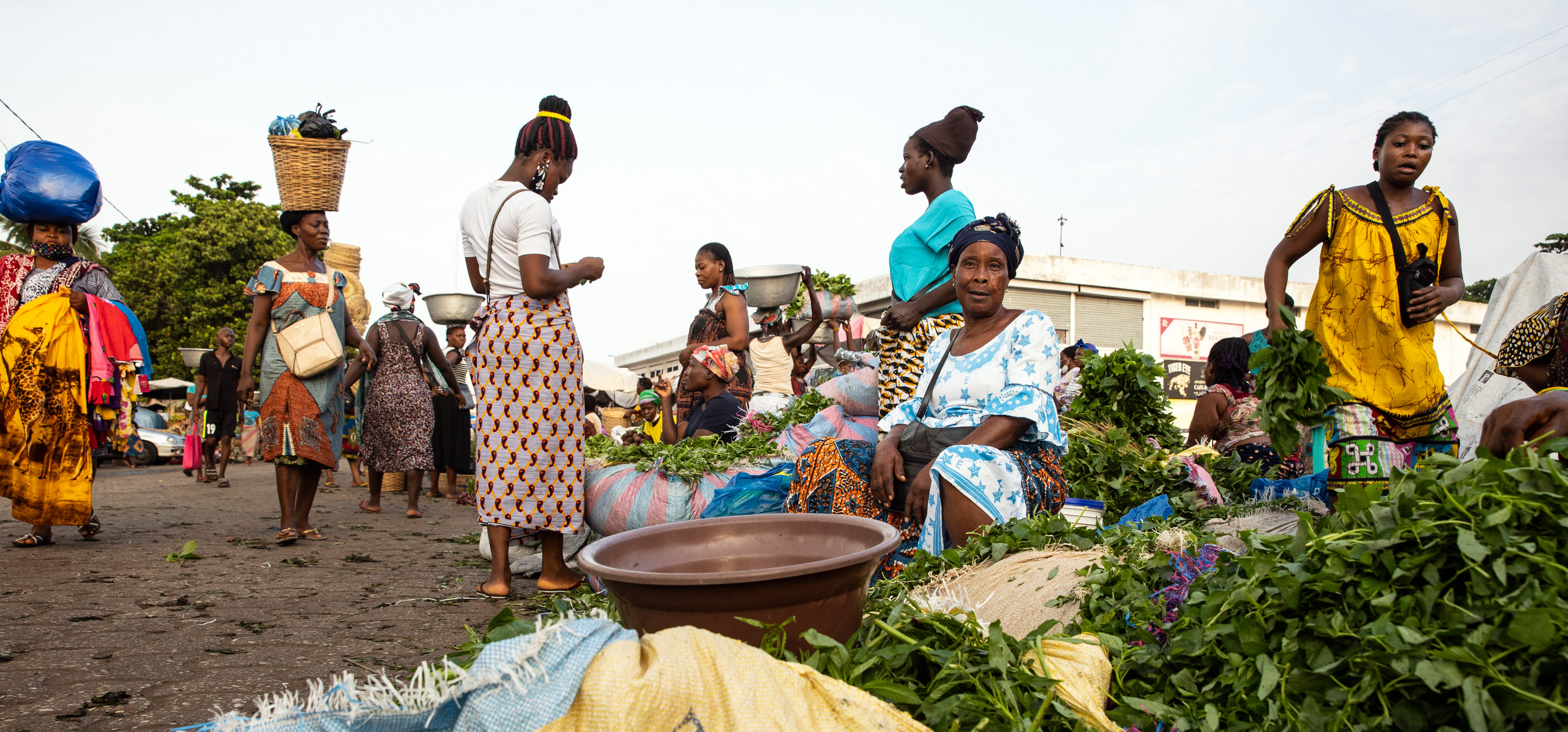Women at the vegetable market in Lomé
Copyright© Ute Grabowsky/photothek.net
Social situation Severe deficits with regard to basic services
The north of the country and rural regions are particularly affected. A large proportion of Togo's people have no reliable access to safe drinking water, and very few households have adequate sanitation.
Malnutrition affects nearly 20 per cent of Togo's people. The rate of stunting among under-five-year-olds is about one in five. The health system is weak, and maternal and child mortality is high. About one third of adults are illiterate.
Rapid population growth
Togo's population has more than doubled over the past three decades (from 4.1 million in 1992 to 8.8 million in 2022). It is expected that its population will double again over the next 30 years. Stable economic growth notwithstanding, the young generation has poor prospects of finding jobs. Unemployment and underemployment are a huge potential source of social conflict.
Situation of women
Officially, women in Togo enjoy equal rights, and they are very active in public life, especially trade. According to a World Bank report, the country has adopted a particularly high number of laws to protect women's rights, compared with other African countries.
However, women are barely represented in political bodies, as traditional patriarchal thinking is still deeply rooted in politics and society. Women also continue to be disadvantaged in the areas of education and healthcare.
Progress has been made on fighting female genital mutilation: in November 2012, Togo announced the official abolition of this cruel practice. However, it is still being practiced, especially in rural areas.
